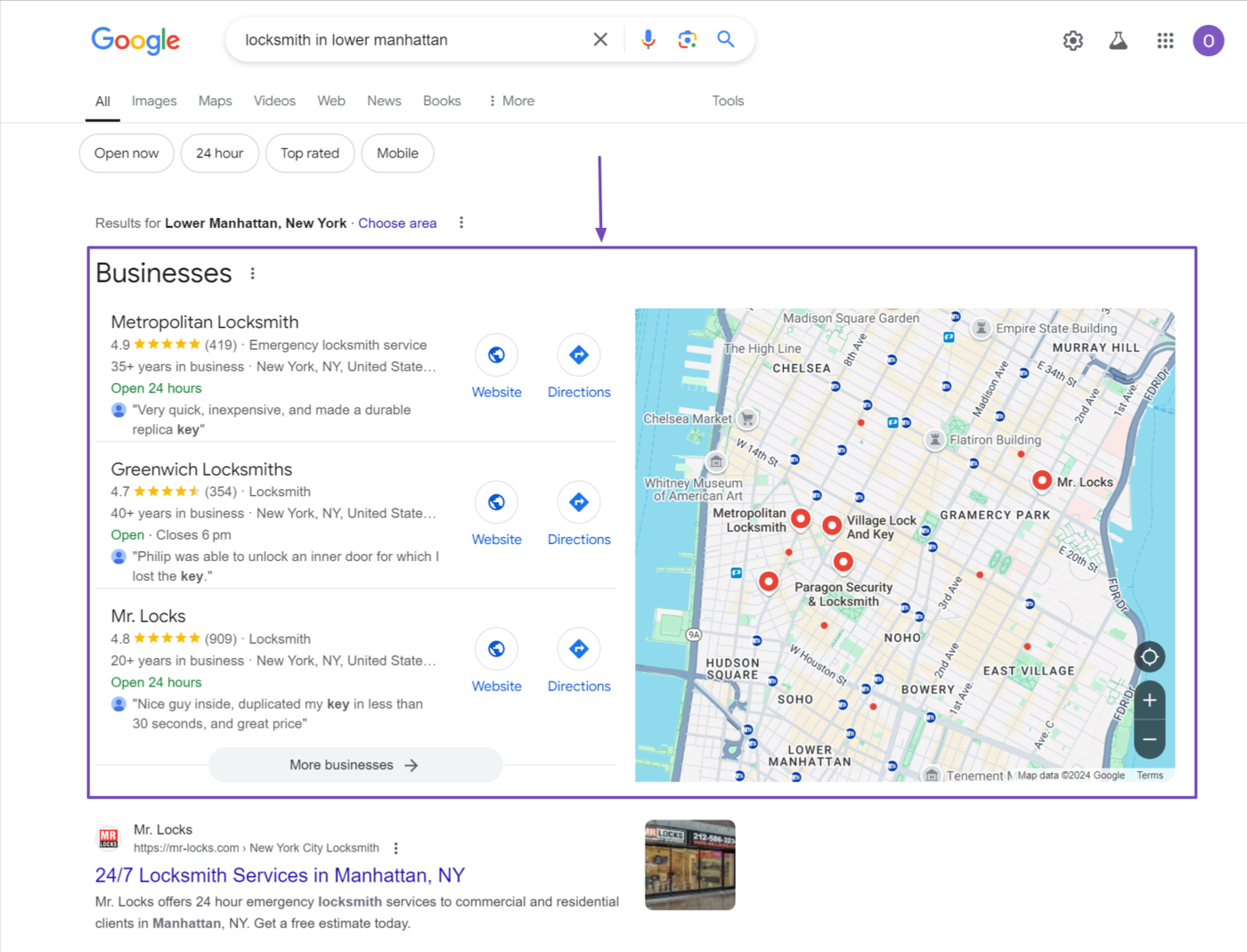What Are Zero-Click Searches?
Zero-click Searches are web searches that end with visitors not clicking on any web pages displayed in the search result. In this case, the visitor did not click on any result because the search engine displayed the answer directly on the search results page.
Zero-click searches are a concern for SEOs since they lose traffic to Google. In the meantime, SEOs have been working around this by targeting keywords that do not lead to zero-click searches.
Pros of Zero-Click Searches
Zero-click searches tend to benefit Google and visitors. Bloggers, on the other hand, typically do not benefit from them since it reduces the traffic to their site.
1 Google Keeps the Visitor on Its Platform
Zero-click searches allow Google to keep its visitors on its platform. In the case of non-zero-click searches, the visitor will typically click on some result on the search results page. This takes them away from Google and to the site or content belonging to the blogger or creator.
However, in the case of zero-click searches, they remain on Google results pages. This benefits Google as the visitor is likelier to view and click on ads displayed on the results page. Visitors are also likelier to explore other Google features on the results page.
2 Visitors Receive Answers to Their Queries Quickly
Zero-click searches allow visitors to access results that answer their query quickly. As a result, they usually do not need to click on any search results since it is already provided on the search results page. This leads to an improved user experience and reduces the time visitors spend seeking answers.
Cons of Zero-Click Searches
Zero-click searches put bloggers directly in competition with Google. Since the features that cause zero-click searches usually rank highly on Google search results pages, sometimes in the area known as position zero, bloggers are effectively outranked by Google, even when they are on the front page.
1 Sites Get Less Traffic and Sales
Zero-click searches have led to many sites receiving less traffic than they would have received without zero-click searches. In the case of e-commerce sites that rely on Google for traffic, it has led to massive losses in sales and revenue.
Zero-click searches impact every result on the search results page. Even top-ranking results on page one receive way less traffic than they would have ordinarily earned without zero-click searches.
2 Bloggers Do Not Benefit From Their Rankings
Zero-click searches prevent sites from benefitting from their Google rankings. Even bloggers who rank on page one of Google are not assured of traffic as many visitors prefer to interact with the results Google already provided on the search results page.
This means that bloggers derive fewer benefits from ranking on Google, even at the topmost area of page one.
This has left many bloggers displeased. Some bloggers try to avoid creating content for keywords that lead to zero-click searches whenever they can. Some even use the nosnippet tag to prevent Google from using their content in features that may result in zero-click searches.
Causes of Zero-Click Searches
Zero-click searches are an effect of the multiple features that allow Google to display results directly on the search results pages. Without these results, visitors would have needed to visit some content to satisfy their search intent. However, the presence of these features reduces the possibility of visitors clicking on the results.
1 AI Overviews
AI overviews are AI-generated summaries or explanations that provide visitors with quick and relevant information on a given topic. Google generates and displays AI overviews when it determines that generative AI responses will be helpful and will allow visitors to better understand the information that they seek.
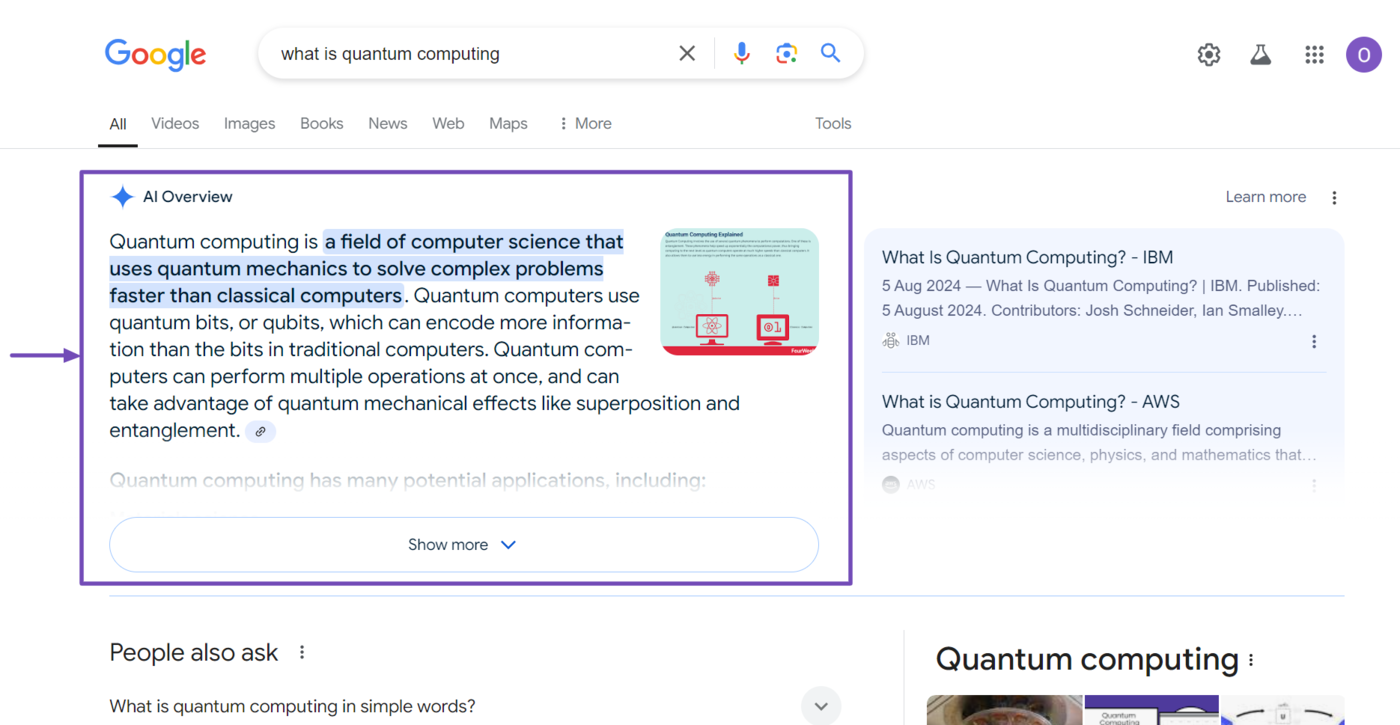
2 Rich Results
Rich results are search results that contain visuals (images or videos) or other interactive elements that provide visitors with additional information about their query. Rich results may be displayed at the top of search results pages or included in the ten blue links results.
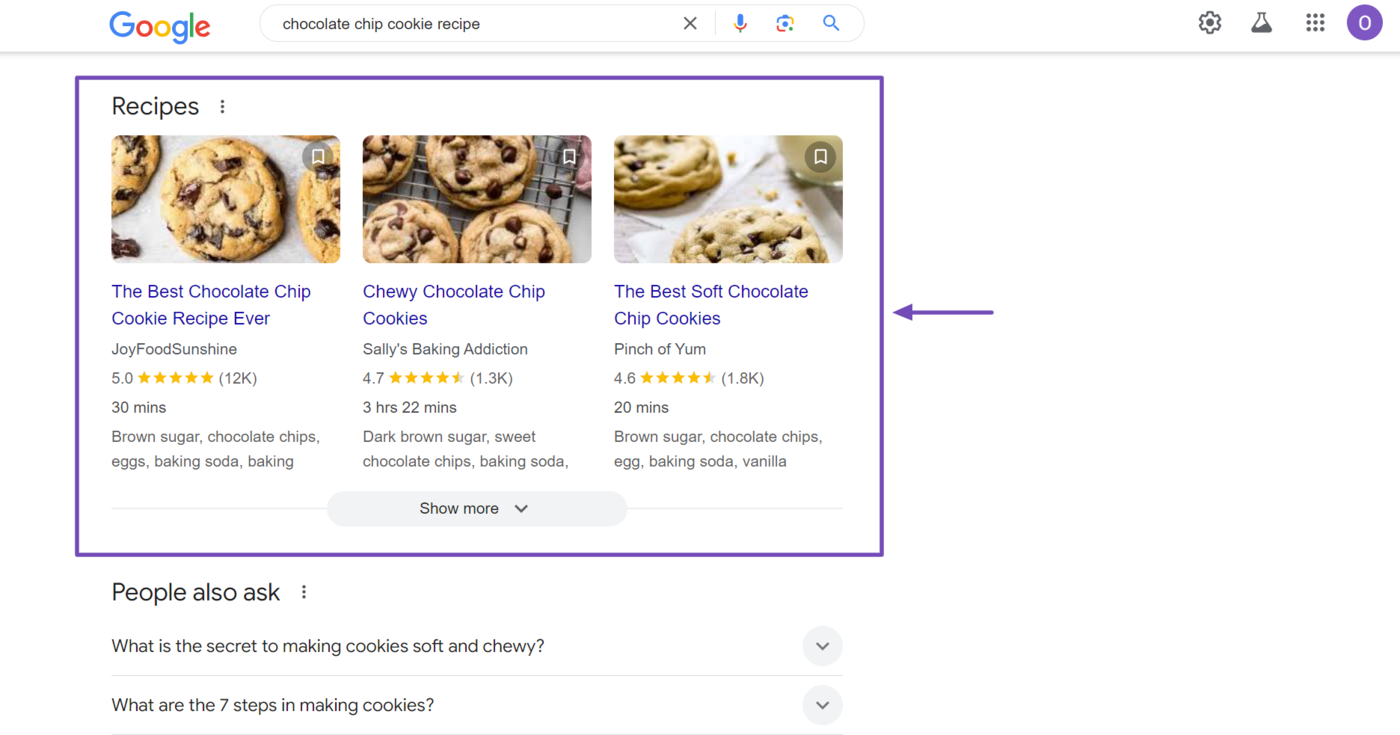
3 Knowledge Panels
The knowledge panel is a Google search results page feature that provides visitors with quick facts about a person, thing, or place. The information is extracted from Google Knowledge Graph, which is a database containing factual information about a person, place, or thing.
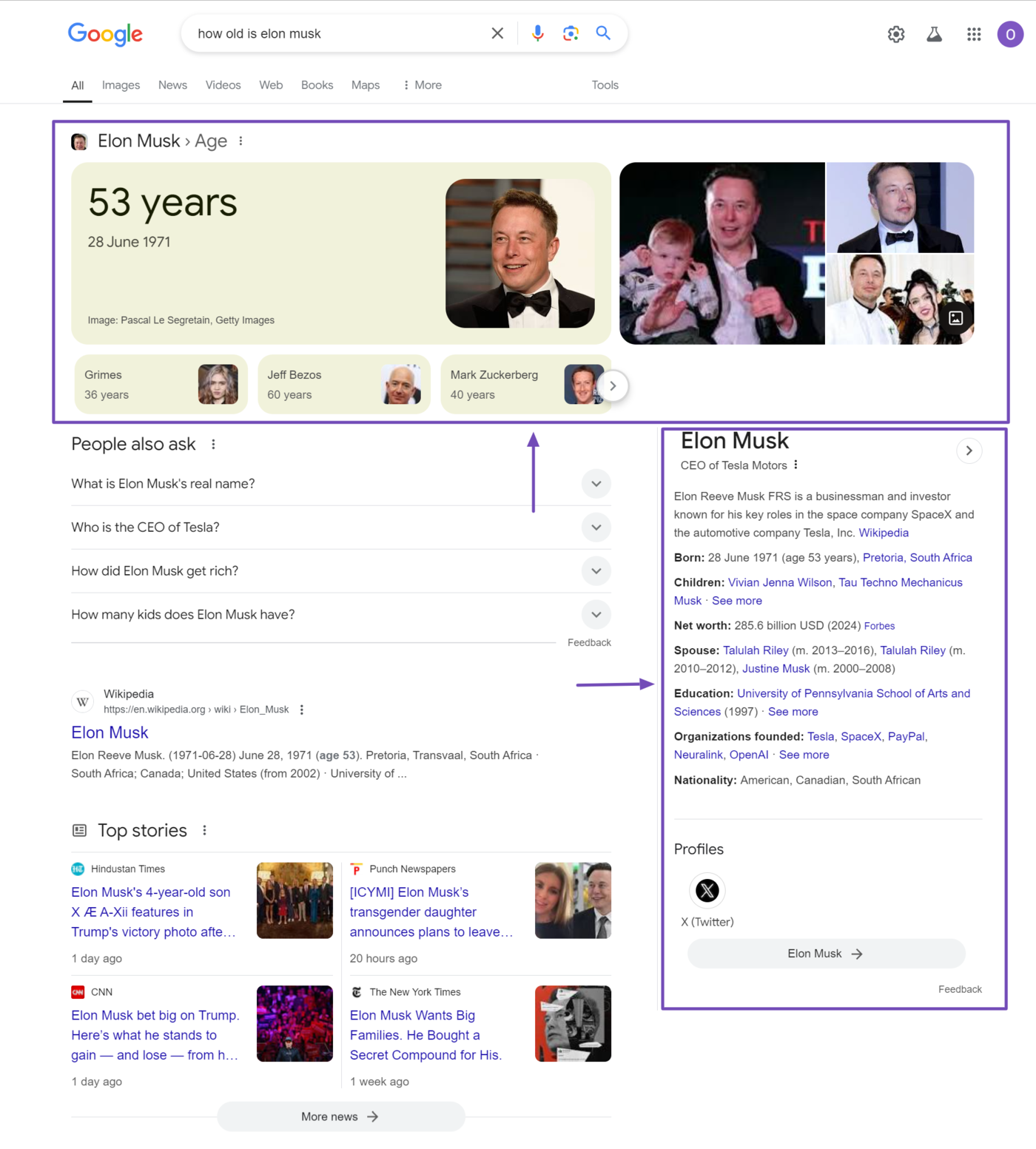
4 Featured Snippets
A featured snippet is the brief results that appear at the top of the search results page or in the People Also Ask section. Featured snippets usually occupy the topmost area of the search results page, which is also called position zero. Google may display one or two featured snippets for a webpage.
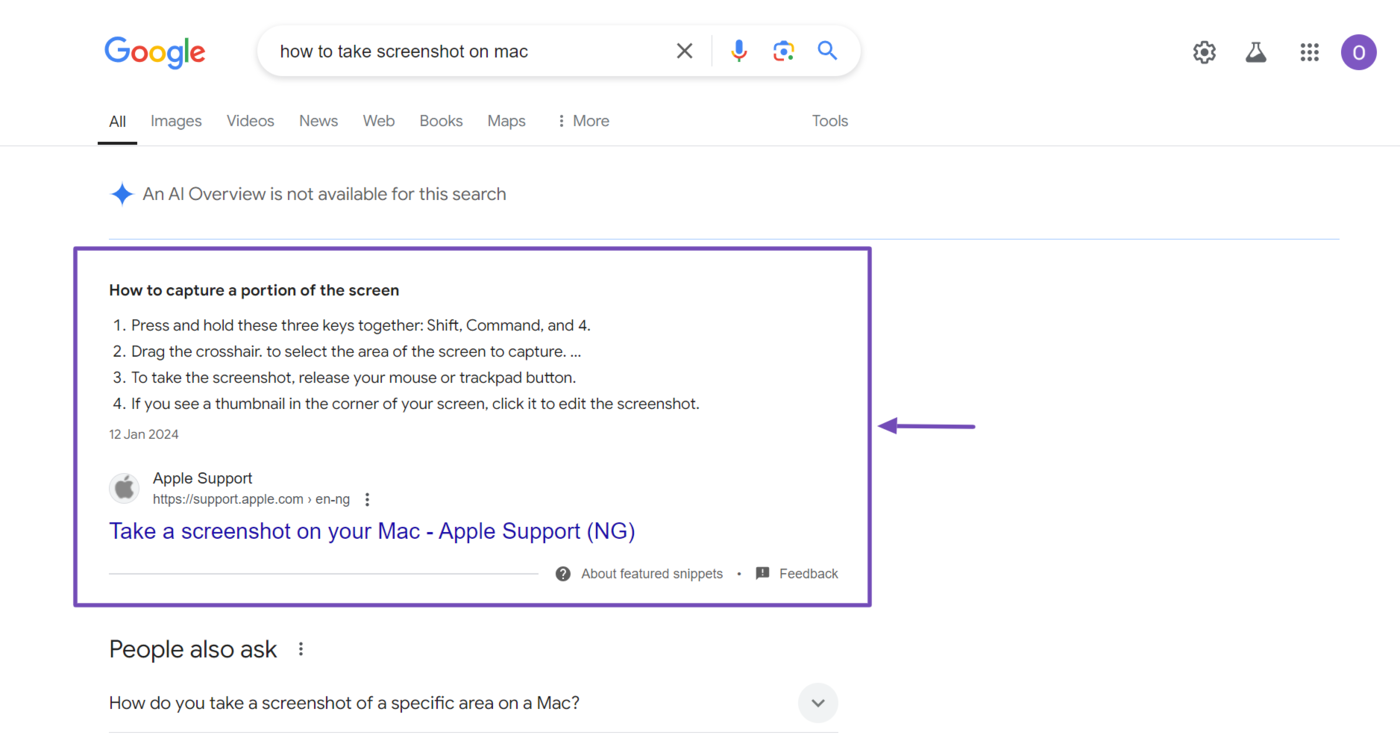
5 People Also Ask
The People Also Ask field displays questions and search queries related to your search query. It is usually displayed as an accordion at the top of the search results pages. Only the question is shown, and visitors need to click on it to see the answer to the question.
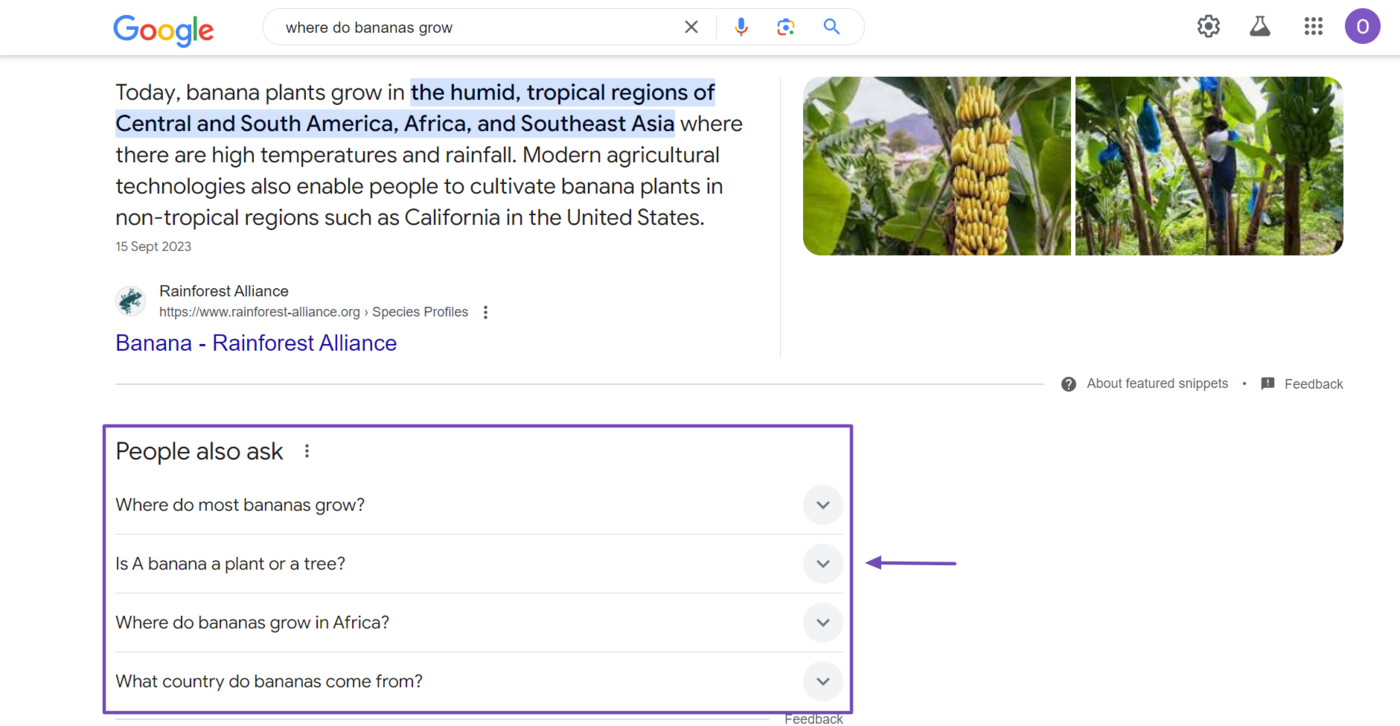
6 Local Pack
The local pack is the map and local businesses displayed in response to local search queries. It usually includes a map and multiple businesses. Google displays it when it determines the visitor is seeking information about a local business.
